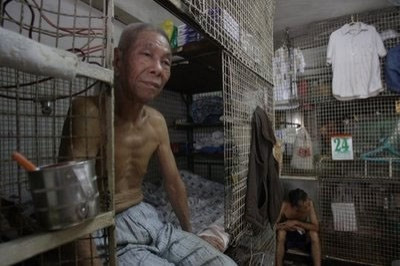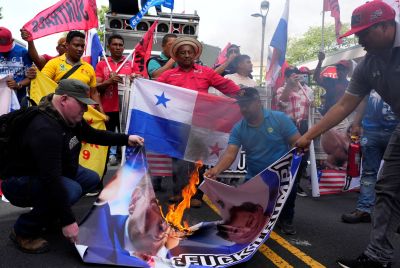Wealth Gap Widening in Hong Kong

Despite a surging economy and beneficial links with its mighty neighbor China, the small nation of Hong Kong has a growing chasm between the rich and the poor.
On the surface, everything seems sparkling.
Unemployment is at a historic low and the government has generated so much revenue that it will hand out 6,000 HK dollars to every permanent resident sometime this year.
Last year, the GDP jumped by 6.8 percent and is expected to climb by 4 percent to 5 percent in 2011.
However, there are troubling signs of discontent and frustration among the poor and middle-class.
The cost of living is high and increasing; while the government is less than democratic. For example, while Hong Kong residents have the right to stage protests, they cannot directly vote for their country’s leaders or for some representatives in the legislature.
According to Society for Community Organization (SOCO), a non-governmental organization that serves the poor, 100,000 people in Hong Kong live in substandard housing.
Hong Kong is a rich city, SOCO social worker Chan Siu Ming told BBC.
But so many people live in such a poor situation. I know many people who can't stand upright in their own home [because of the small size.]
Christine Loh, the chief of The Civil Exchange, a think tank and a former government legislator, said to BBC: What you have is a whole wodge of people who have jobs but are still struggling. I think people are increasingly questioning why our society is the way it is.
Housing prices are skyrocketing -- up 24 percent last year, and climbing 12 percent so far this year, prompted largely by wealthy mainland Chinese snapping up properties.
Food (most of which has to be imported from China) is also becoming prohibitively expensive.
However, the government has taken some steps to try to address these problems – in May, the minimum wage was increased. According to reports, 10 percent of the working population of Hong Kong will benefit from this measure.
With inflation and the cost of living rising, low-income workers really have a hard time feeding a family, said Lee Cheuk-yan, president of the Hong Kong Confederation of Trade Unions and a legislator, according to BBC.
The state will also consider the construction of more public housing for low-income people.
© Copyright IBTimes 2024. All rights reserved.





















